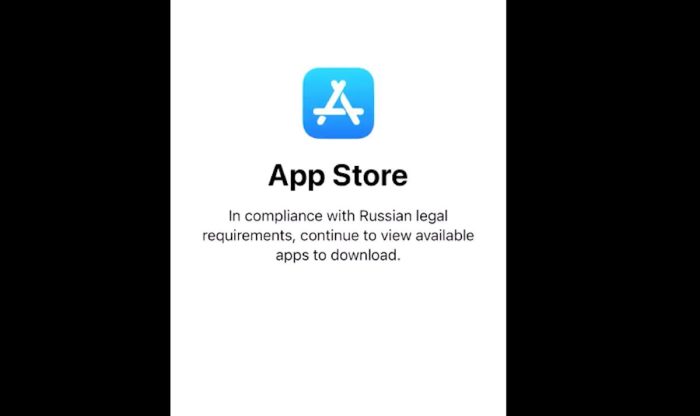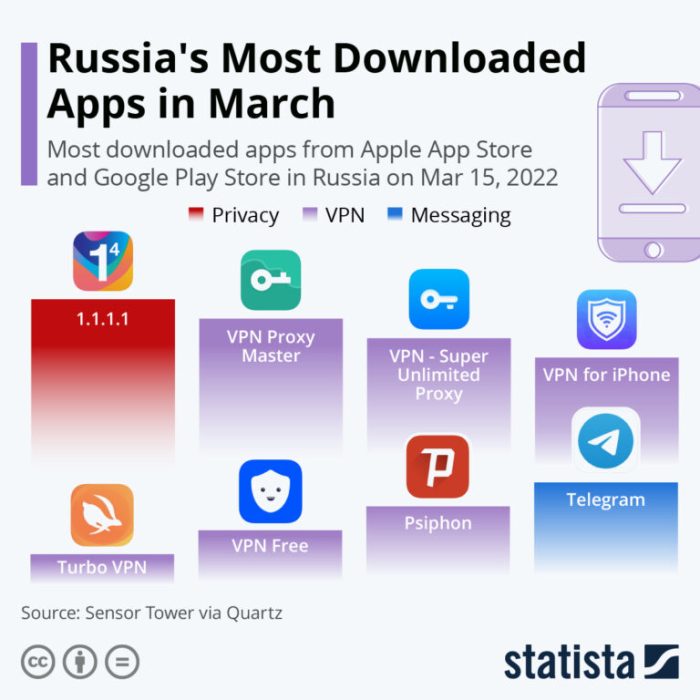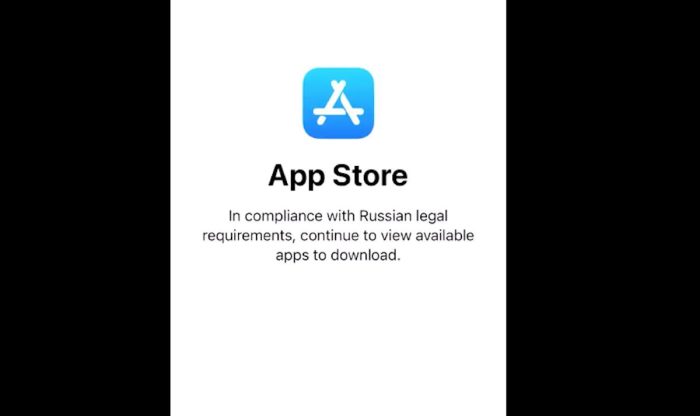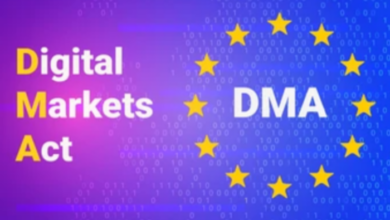
Russian iPhone App Store Removes VPN Apps Following Kremlin Demands
Russian iphone app store removes multiple vpn apps following kremlin demands – Russian iPhone App Store Removes VPN Apps Following Kremlin Demands: This move, part of a broader tightening of internet control, reflects the Kremlin’s increasing efforts to restrict online freedom and access to information. The removal of these apps, used by millions of Russians to bypass censorship and access blocked websites, has sparked widespread concern about the future of internet freedom in Russia.
The Kremlin’s demand for the removal of VPN apps highlights the ongoing tension between the government’s desire for control and the public’s desire for open access to information. This action has significant implications for the future of online freedom in Russia and raises questions about the balance between national security and individual rights in the digital age.
Background and Context
The recent removal of multiple VPN apps from the Russian iPhone App Store, following demands from the Kremlin, highlights the growing tension between the Russian government and its citizens’ desire for online freedom. This move comes amidst a broader crackdown on dissent and access to independent information, shaping the current political and social landscape in Russia.
The Role of VPNs in Russia
VPNs (Virtual Private Networks) have become increasingly popular in Russia as a means to circumvent government censorship and access blocked websites and services. They allow users to create a secure and encrypted connection to a server in another country, effectively masking their location and bypassing internet restrictions.
This is particularly crucial for accessing social media platforms like Facebook, Twitter, and Instagram, which have been blocked or restricted in Russia since the beginning of the war in Ukraine.
Timeline of Recent Events
The removal of VPN apps from the App Store is the latest in a series of actions taken by the Russian government to restrict online freedom.
- March 2022:The Russian government began blocking access to Facebook, Twitter, and Instagram, citing the platforms’ spread of “false information” about the war in Ukraine.
- April 2022:The Russian government passed a law criminalizing the spread of “fake news” about the military, leading to increased censorship and arrests of journalists and activists.
The recent removal of multiple VPN apps from the Russian iPhone App Store, following Kremlin demands, is a stark reminder of the tightening grip on internet freedom. It’s like trying to align content right left word when your options are limited.
This move further restricts access to information and services, highlighting the growing censorship and control within the country.
- June 2022:Roskomnadzor, the Russian media regulator, began blocking access to VPN services that were not registered with the government.
- August 2023:The Russian government ordered the removal of multiple VPN apps from the iPhone App Store, citing their failure to comply with local regulations.
The Kremlin’s Demands

The Kremlin’s actions regarding VPN apps are part of a broader pattern of tightening control over information and online activity in Russia. These demands are not isolated incidents, but rather reflect a larger strategy to limit access to independent and dissenting voices.
The Russian iPhone App Store’s removal of VPN apps at the Kremlin’s behest is a stark reminder of how governments can exert control over online access. While we can’t change the political landscape, we can at least personalize our digital experience.
For instance, you can customize the color of your Microsoft Office suite , adding a touch of individuality to your workflow. It’s a small act of control in a world where access to information is increasingly restricted.
The Kremlin has made specific demands regarding VPN apps, aiming to restrict their use and control the flow of information within Russia.
The Kremlin’s Specific Demands
The Kremlin’s demands regarding VPN apps are aimed at limiting their functionality and increasing government oversight. These demands include:
- Registration of VPN providers:The Kremlin has demanded that all VPN providers register with the government, providing details about their operations and ownership. This requirement aims to make it easier for the government to track and potentially censor VPN traffic.
- Blocking of VPNs that do not comply:The Kremlin has threatened to block VPN apps that do not comply with its demands. This includes registering with the government and potentially filtering content deemed undesirable by the authorities.
- Data sharing:The Kremlin has also demanded that VPN providers share user data with the government. This includes information about users’ online activities and potentially their identities.
The Rationale Behind the Kremlin’s Actions
The Kremlin’s actions are driven by a desire to control information flow and limit access to content that it deems harmful or threatening to its authority. The government argues that these measures are necessary to protect national security and prevent the spread of misinformation.
However, critics argue that these actions are aimed at silencing dissent and limiting freedom of expression.
Potential Impact on Russian Citizens
The Kremlin’s actions regarding VPN apps have a significant impact on Russian citizens, particularly those seeking access to information that is restricted within the country. These actions:
- Restrict access to information:The blocking of VPN apps limits Russian citizens’ ability to access information from outside the country, including news sources, social media platforms, and websites that are critical of the government.
- Censor online content:The government’s demands for VPN providers to filter content create a system of censorship that restricts access to information that the government deems undesirable.
- Threaten privacy:The requirement for VPN providers to share user data with the government poses a serious threat to privacy and security.
The App Store Removal

The Kremlin’s demand to remove VPN apps from the Russian App Store has resulted in a significant loss of online freedom for Russian users. This move further cements the Russian government’s control over internet access and information flow within the country.
VPN Apps Removed
The removal of VPN apps from the Russian App Store has directly impacted users’ ability to access blocked websites and services. The following VPN apps were removed:
- NordVPN
- ExpressVPN
- Surfshark
- CyberGhost VPN
- ProtonVPN
- Private Internet Access
- IPVanish
- VyprVPN
- TorGuard
These apps were popular choices for users seeking to bypass censorship and access content restricted within Russia.
Response from App Developers and Users
The removal of these apps has sparked outrage from both app developers and users.
- NordVPN issued a statement condemning the removal, highlighting the importance of online freedom and privacy.
- ExpressVPN expressed disappointment, stating that the removal hinders users’ ability to access information and communicate freely.
- Users have expressed frustration and concern, as they are now limited in their ability to access the internet without censorship.
Many users have resorted to alternative methods, such as using browser extensions or manually configuring VPN connections, but these solutions are often less reliable and secure.
Implications for Online Freedom
The removal of VPN apps from the Russian App Store has significant implications for online freedom:
- Increased Censorship:The removal further restricts access to information and services blocked by the Russian government.
- Limited Access to Global Content:Users are unable to access content from other countries, including news, social media platforms, and streaming services.
- Reduced Privacy:Without VPNs, users are more vulnerable to government surveillance and tracking of their online activities.
This move highlights the Russian government’s commitment to controlling the internet and limiting its citizens’ access to information. It also underscores the importance of VPNs in protecting online freedom and privacy, particularly in countries with restrictive internet policies.
International Response: Russian Iphone App Store Removes Multiple Vpn Apps Following Kremlin Demands
The removal of VPN apps from the Russian App Store sparked international condemnation, with many governments and organizations expressing concerns about the implications for freedom of expression and internet access. The responses varied in their severity, reflecting the different political and economic relationships between Russia and other countries.
Reactions from International Organizations
The international response to the Kremlin’s demands and Apple’s compliance was swift and critical. Several organizations expressed concerns about the implications for internet freedom and digital rights.
- The United Nations High Commissioner for Human Rights, Michelle Bachelet, stated that “the blocking of VPN apps raises serious concerns about the right to freedom of expression and access to information.” She emphasized that these rights are essential for a democratic society.
- The Committee to Protect Journalists (CPJ) condemned the removal of VPN apps, stating that it “undermines the ability of journalists and others to access independent information.” CPJ highlighted the importance of VPNs for journalists working in countries with restricted internet access.
- The Organization for Security and Co-operation in Europe (OSCE) expressed concern about the move, stating that it “raises serious questions about the Russian government’s commitment to freedom of expression and access to information.” The OSCE called on Russia to respect its international obligations regarding human rights.
Responses from Governments, Russian iphone app store removes multiple vpn apps following kremlin demands
Governments around the world also expressed concerns about the removal of VPN apps from the Russian App Store. While some governments condemned the move directly, others issued more cautious statements.
- The United States government criticized the move, calling it “a blatant attempt to censor the internet and restrict access to information.” The U.S. State Department expressed its concern about the implications for freedom of expression and the rule of law in Russia.
- The European Union issued a statement expressing “serious concern” about the removal of VPN apps, calling it “a worrying trend that undermines the right to freedom of expression and access to information.” The EU called on Russia to uphold its international commitments regarding human rights.
- The Canadian government expressed “deep concern” about the move, stating that it “undermines the right to freedom of expression and access to information.” Canada called on Russia to respect the rights of its citizens and to uphold international standards.
- The UK government condemned the move, calling it “a clear violation of freedom of expression.” The UK government called on Russia to reverse its decision and to respect the rights of its citizens.







